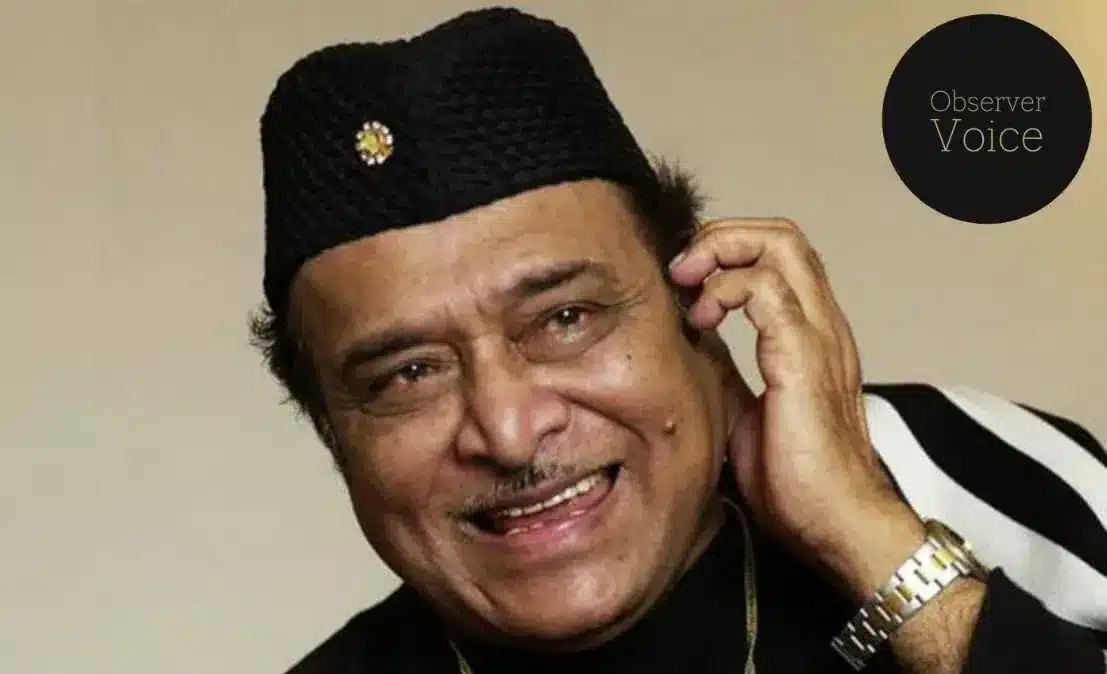Bhupen Hazarika: Maestro of Assamese Culture and Music

Bhupen Hazarika was an Indian playback singer, musician, and poet. Popularly known as ‘Bard of Brahmaputra’. Most of the songs were written in Assamese.
Life and Career
Bhupen Hazarika was born on 8 September 1926, in Assam, India. He completed his primary education at Sonaram High School in Guwahati, and in 1940 he did his matriculation at Tezpur High School. In 1942 he completes his Intermediate in Arts from Cotton College. Later in 1942 he got admission to Banaras Hindu University and did his B.A. and M.A. in political science in 1946. Later he worked at the All-India Radio station in Guwahati. After 3 years in 1952, he joined Columbia University, New York, and earned his doctoral degree.
In 1936, He recorded his first song at Kolkata’s Aurora Studio. At the age of 12, In 1939 he sang two songs in Agarwala’s film Indramalati, Kaxote Kolosi Loi and Biswo Bijoyi Naujawan. In 1939, he wrote his first song.
In New York, he befriended Paul Robeson, which influenced him to compose the famous song Bistirno Parore which is based on the imagery and theme of Robeson’s Ol’ Man River. This song is considered one of his epic compositions and it was translated into many Indian languages.
Later in 1961, he became a film director and made award-winning Assamese films Shakuntala Sur, and Pratidhwani (1964). He also composed music for many Assamese and Bangla movies such as Aarop, Chameli Memsaab, and Shimana Perye. He is also acknowledged to have introduced the culture and folk music of Assam and Northeast India to Hindi cinema at the national level. he composed and sang songs that are marked by themes of humanity and universal brotherhood. One of his major contributions to Hindi cinema was composing music for well-known films such as Arop, Ek Pal, and Rudaali.
He also held the position of the Chairman of the Sangeet Natak Akademi from 1998 to 2003. He died on 5 November 2011 in Mumbai, Maharashtra, India.
Awards and Legacy
In 1961, he received the National Award for Best Feature Film in Assamese. In 1987, He was a recipient of the Sangeet Natak Akademi Award. In 1992, he also received the Dadasaheb Phalke Award. In 1993, he won the Best Music Director National Award for Rudaali. In 1977, he also received Padma Shri, the fourth-highest civilian award in the Republic of India. In 2001, Padma Bhushan was the third-highest civilian award in the Republic of India.
In 2019 Bharat Ratna, was the highest civilian award in the Republic of India.
Read More: 3 November: Amartya Kumar Sen an Indian economist
Observer Voice is the one stop site for National, International news, Sports, Editor’s Choice, Art/culture contents, Quotes and much more. We also cover historical contents. Historical contents includes World History, Indian History, and what happened today. The website also covers Entertainment across the India and World.

